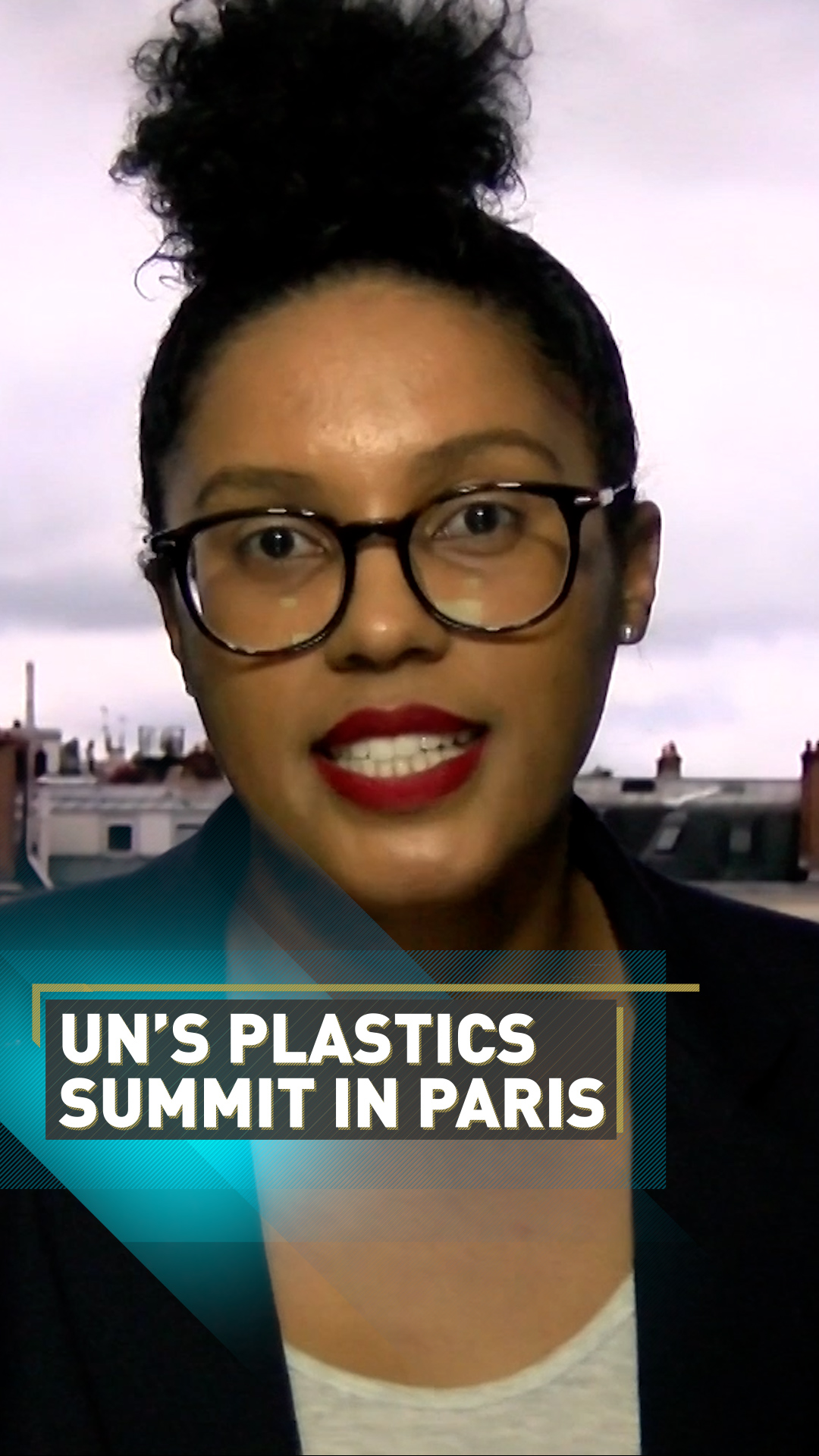01:01

French President Emmanuel Macron has described the global plastic pollution crisis as a "ticking time bomb that has left no corner of the globe unscathed.
In the race to address the mounds of plastic build-up, diplomats met in Paris this week for talks on an international, legally-binding treaty to end plastic waste.
The five-day conference was the second of five sessions. One more plastics treaty caucus will be held in Nairobi, Kenya in November this year, and two more in 2024.
The days of intense debate at the UNESCO headquarters in Paris have been soundtracked by environmental campaigners at the venue chanting slogans like: "We want a global plastics treaty, we want it now."
Climate activists say the stakes couldn't be higher. In her opening remarks, Inger Andersen, the Executive Director of the United Nations Environment Program, struck a stern and emphatic note: "Only elimination, reduction, a full lifecycle approach, transparency and a just transition, only those can bring success because the truth is that we cannot recycle our way out of this mess."
The Organisation for Economic Co-operation and Development (OECD) says plastic accounted for 1.8 billion tonnes of greenhouse gases in 2019- that’s 3.4 percent of all global emissions.
A global approach
One of the challenges facing campaigners is the lack of a global framework which means that good intentions in one country can simply shift the problem to others.
"Current governance on plastic pollution is really fragmented. So we need a global instrument and especially a legally binding instrument because voluntary has clearly shown that it doesn't work," said OceanCare's Fabienne McLellan.
"This is an absolutely historic chance that we are now discussing here."
Host country France also appealed to the representatives of 175 countries to suspend unfair waste management systems, and end high-pollutant plastic manufacturing.

A man walks on the plastic waste borne by the sea in Mumbai, India. /Bhushan Koyande /HT Photo via CFP
A man walks on the plastic waste borne by the sea in Mumbai, India. /Bhushan Koyande /HT Photo via CFP
French President Emmanuel Macron urged delegates, especially those from the biggest economies, to commit to the objectives of the treaty and rethink the status quo.
"This means, first of all, that we must put a definitive end to a globalised and unsustainable model that consists of producing plastic in China or in OECD countries, and then exporting it in the form of waste to developing countries, which are less well equipped with waste treatment systems.
"Today, we extract oil to produce plastic, which we burn or bury a few months later. This makes no economic or ecological sense."
Small problem, big problem
One of the major challenges in tackling plastic pollution is that as the materials degrade, rather than breaking down into new substances that can return into an ecological cycle, they simply disintegrate into smaller and smaller pieces of plastic. These so-called "micro" or "nano" plastics then become increasingly hard to detect or remove from the environment and develop the ability to pass into the blood streams of animals and people.
They have been found in even the remotest corners of the planet including the ice sheets at both the North and South poles.
For the coastal communities of the South Pacific and the Caribbean, these impacts are life threatening – as Greenpeace plastics campaigner Juressa Lee explains.
"What we are experiencing in the South Pacific, we are at risk of rising sea levels, you know, our access to drinking water and Pacific Islands is at threat because of the climate crisis," says Lee.
"And knowing that plastic pollution is contributing to that, I want to make sure that this is understood by all the governments who are here."
Before the treaty is signed in 2025, delegates will have to agree on practical details of the pact, including financing policies and production caps on new plastic items. After the Paris sittings, a draft of the treaty text was agreed.
Delegates hope the conversation and robust discussions continue on the sidelines of these meetings to maintain the pressure and impetus to evoke lasting change.

Subscribe to Storyboard: A weekly newsletter bringing you the best of CGTN every Friday